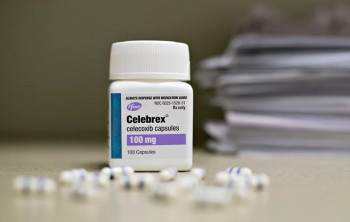Is Tylenol Safe To Take With St. John's Wort?
In our latest question and answer, the pharmacist discusses the safety of combining Tylenol (acetaminophen) with St. John's Wort.

Question
I take St. John's Wort for depression, and it actually works pretty well! I also take Tylenol every once in awhile. Is that safe to combine?

Answered by Dr. Brian Staiger, PharmD
Medical Content Reviewed By HelloPharmacist
Staff
Last updated Jun 27, 2025
Key points
- St. John's Wort and Tylenol (acetaminophen) are generally considered safe to use together on an intermittent basis.
- Studies are conflicting, but some report that St. John's Wort may increase or decrease acetaminophen metabolism. However, this isn't thought to be clinically significant with short-term use.
Answer
Thanks for contacting us! While it can sometimes be a challenge to assess potential interactions between natural products and drugs, St. John's Wort is one of the most extensively researched natural products, so we have a better idea of its safety than most.
In fact, St. John's Wort has fairly strong documentation regarding potential drug interactions, especially with antidepressant drugs, like SSRIs like Zoloft, Prozac, and Paxil.
As it concerns Tylenol (acetaminophen), there is some conflicting information, but it appears any interaction between them would be considered minor, and overall, intermittent use of Tylenol is considered safe if you take St. John's Wort consistently.
Interaction Details
St. John's Wort is known to have serotonergic effects (which is why it interacts with other drugs that affect serotonin) and can affect a number of different metabolizing enzymes in the body, notably CYP3A4.
St. John's Wort can induce (i.e. enhance) the metabolizing effects of the enzyme, so other drugs that are metabolized by it get processed faster than usual. This has the effect of oftentimes reducing how well other medications work.
Some studies have shown that St. John's Wort may also induce CYP1A2, which is what metabolizes Tylenol (acetaminophen). This could potentially cause Tylenol to be metabolized faster, reducing the effects of the drug. It should be noted though that there have not been large-scale studies in this regard, and more are certainly needed for a definitive conclusion.
Additionally, some animal studies have found the opposite. One such study in rats found that St. John's Wort can inhibit CYP1A2, which could cause an increase in acetaminophen concentrations. This has not been seen in humans, however.
Having said all of the above, there have not been any reported serious side effects with the combination of St. John's Wort and Tylenol, and, overall, there are considered safe to use with each other on an intermittent basis.
Final Words
I hope you found this information helpful and please feel free to reach back out again in the future!
References
- Effect of St John's wort on the activities of CYP1A2, CYP3A4, CYP2D6, N-acetyltransferase 2, and xanthine oxidase in healthy males and females, PubMed
- The effect of St John's wort (hypericum perforatum) on cytochrome p450 1a2 activity in perfused rat liver, PubMed
- Evaluation of Nigerian Medicinal Plants Extract on Human P-glycoprotein and Cytochrome P450 Enzyme Induction: Implications for Herb-drug Interaction, PubMed
-
 Dr. Brian Staiger, PharmD
Dr. Brian Staiger, PharmD
- 1453 views


